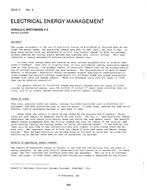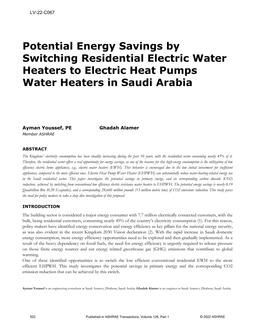Dynamic and static performance of a VAV system under different ventilation control strategies is investigated. The effect of many factors on the performance of ventilation control strategy, such as occupancy and thermal load distributions between zones, locations and number of zones served, outdoor air CO2 concentration, and PI control, is discussed. A new ventilation control strategy based on supply air CO2 concentration is proposed for multizone VAV systems. Results are compared with those of existing ventilation control strategies, such as CO2-based demand-controlled ventilation and the multi-space equation strategy proposed by ASHRAE Standard 62. Simulation results made on a typical multizone VAV system show that the studied factors play an important role in selecting ventilation control strategies for better performance.
Units: SI
Citation: ASHRAE Transactions, Vol. 113, pt 1, Dallas 2007
Product Details
- Published:
- 2007
- Number of Pages:
- 13
- File Size:
- 1 file , 920 KB
- Product Code(s):
- D-DA-07-067


